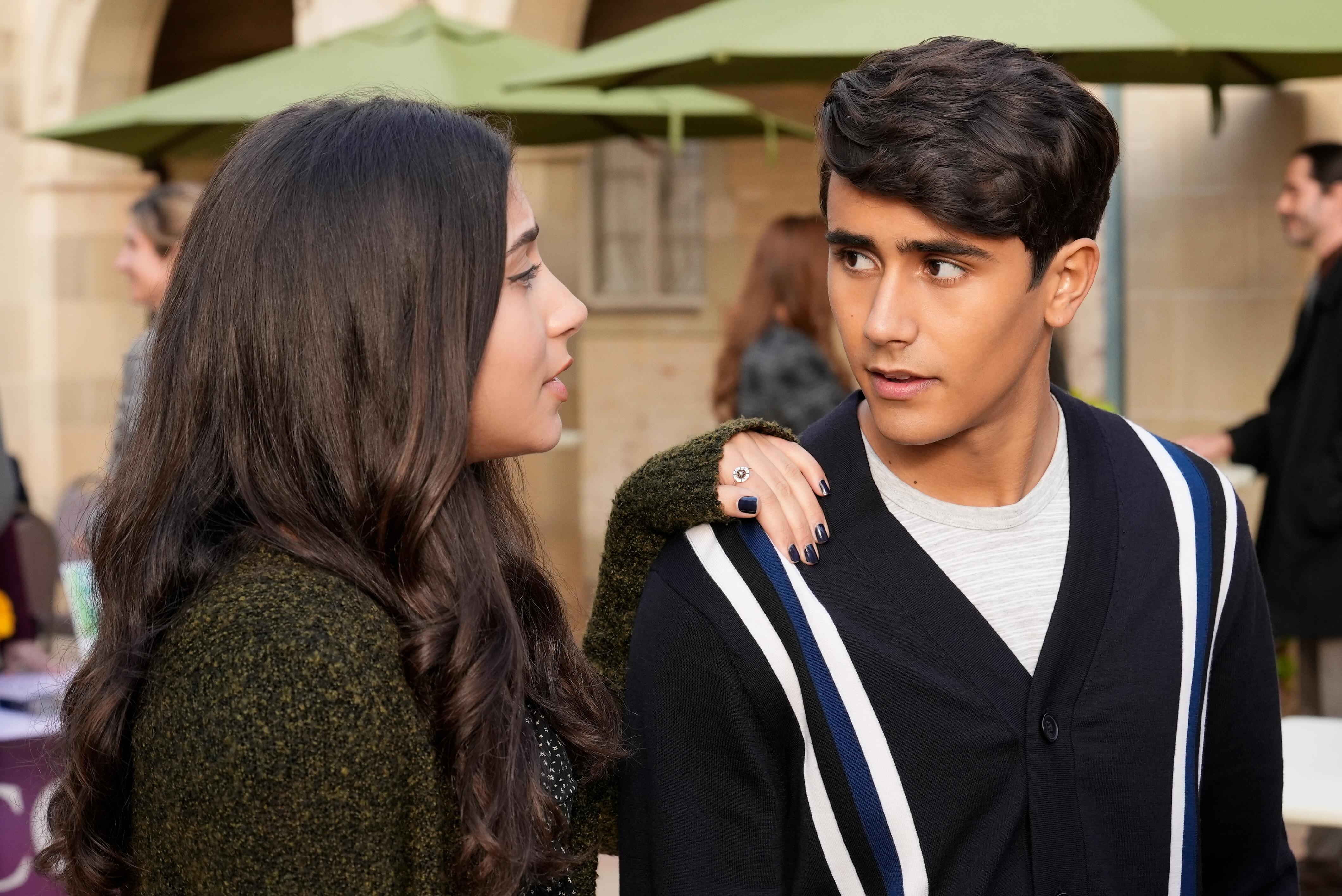Love, Victor's final season is treacly yet charming
The most engaging parts of the teen drama's last bow often have little to do with its bashful title character

When news broke that Love, Victor’s first season would not be debuting on Disney+ (it would go exclusively to Hulu), much was made of the way the Mouse House was playing into dangerous rhetoric that equated all things LGBTQ+ with “mature content” not suited for family friendly fare. When we all got to watch those first 10 episodes, the move felt particularly tone deaf. Here was, after all, as chaste and sweet and tender a coming-out-story-slash-gay-romantic-tale as you could find. The show, like the movie it had been vaguely spun off from (Love, Simon), seemed especially designed to speak to those kids and those families who could use an inoffensive story like Victor’s in their life. As a template. As a role model. As an inspiration.
This remains true in the show’s third and final season. Which is why it’s been equally thrilling to see Love, Victor move beyond a series-long “very special episode” (though there still is that vibe here) and grapple with thornier and more mature themes (STI scares! Casual sex! Party drugs!) with the same care we’ve come to expect from this GLAAD Media Award-nominated show.
And true to form, at the heart of the series (for better and for worse) is lovestruck Victor (Michael Cimino). In the season two finale, we’d seen him pull a rom-com move and show up at a boy’s door unannounced after seemingly botching both his relationship with Benji (George Sear) and his budding friendship with Rahim (Anthony Keyvan). Giving us flashbacks to old school WB teen drama cliffhangers, the season-three premiere opens with Victor beaming at the camera (“it’s always been you,” which gives the episode its title). I won’t spoil who he chose, but it’s clear the writers wanted to throw several wrenches into what would otherwise be a drama-free relationship. What it ends up doing is pushing Victor to reassess what and who he wants, which is a particularly healthy thing for a newly out gay teen to ponder—and act on. And indeed, it leads to some of the show’s most interesting twists on this most adorable of high school boys who somehow still has no trouble landing hot boy after hot boy.
But no matter how you feel about Victor’s choice and the consequences it wreaks on his love life, it’s become increasingly obvious that the most engaging parts of Love, Victor have often very little to do with its bashful title character, who, in the final episode, drives the show’s main themes home, reminding his fellow students that to be “brave means you aren’t afraid of being scared.” Oh, and that romance remains king when trying to articulate one’s own sexuality (a by-product, no doubt, of stitching coming out tales with romantic stories).
And so the show is more fruitful when it explores the outskirts of Victor’s story. Those of us who so fell for Rahim last season, for instance (and who maybe are still wishing he’d get his own Love, Rahim spin-off) will be delighted at seeing the tall math whiz get plenty more chances to charm. Similarly, the lovely, awkward energy that Lake and Felix (the always hilarious Bebe Wood and Anthony Turpel) brought out in each other is here further refracted once each finds a new better half with whom to share their quirky idiosyncrasies.
It’s in those stories at the margins—with Victor’s friends navigating what it means to grow into oneself, often butting heads with their own well-meaning parents—where the most exciting aspects of the show are taking place. Much of it, it must be pointed out, is due to the strength of the series’ young ensemble; Keyvan, Wood, and Ava Capri (whose Lucy, in particular, volleys beautifully with Lake) all light up the scenes they’re in. (Our favorite line of the season may well be Lake describing Lucy as “like Twilight-era Kristen Stewart but capable of smiling.”) The light these many teens bring into each other’s lives is central to how Love, Victor structures its many mini-dramas.
Then again, the many obstacles and challenges the writers throw at Victor & Co. this season never really feel weighted with too much danger. Everything is almost too neatly plotted, too easily solved. These are, it turns out, inordinately mature teenagers who have yet to meet a challenge they cannot overcome with open, honest communication. If this doesn’t particularly make for high stakes drama, it serves the audience well as a blueprint to make sense of teenage growing pains.
After all, the treacly sweetness of the series continues to be its most palatable feature precisely because the show’s goal has always been as much about didacticism as it has been about entertainment. Whether it’s showing us how to deal with a needling mom who’s inadvertently pushing her daughter away, tracking how a drinking problem can become a punchline in the school hallway, or tackling what it feels like to worry about sexually transmitted diseases, Love, Victor is awash in teachable moments. And sweet ones. The kind that make you turn your head and go, “awww.” It’s hard to deny its charms, as guileless and blindly optimistic as some of us may still find them.